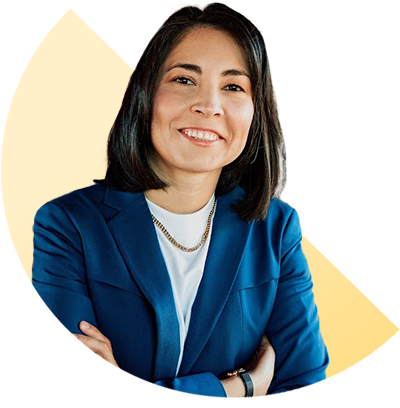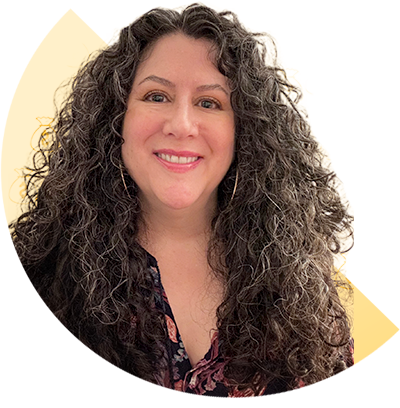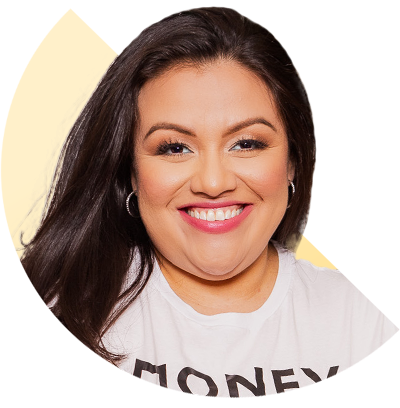Managing debt can be challenging — especially for mothers, who are often tracking far more than just numbers on a spreadsheet. Every mom’s financial journey is shaped by her family structure, caregiving responsibilities, health, income goals and emotional bandwidth.
Financial decisions are strategic responses to the demands of each mother’s life. A payment plan that makes sense for one mom might feel impossible for another. That’s why any advice about debt has to start with context — because money decisions are always shaped by what’s going on in our lives, our homes and our bodies.
I talked to five financial coaches, each in a radically different season of life, and they graciously offered their personal experiences and practical strategies for navigating debt. From business credit cards to bankruptcy, from foster care to first-time parenting, they remind us that paying off debt isn’t just about budgeting — it’s about self-trust, creativity and self-compassion.
Meet the Moms
The Newborn Mom: Andrea Ramos is adjusting to life with a 16-week old while managing business debt and prioritizing nervous system regulation.

The Foster Mom: Nicole Valenzuela parents under the watchful eyes of the foster care system and uses return-on-investment (ROI) thinking to manage debt with sovereignty.

The Bankruptcy Survivor Mom: Deborah Johnson Miranda reframed financial loss as resilience and believes in naming debt without shame.

The Chronic Illness Mom: Sahirenys Ortega Pierce relies on structure, grace and family mantras to stay prepared for life’s curveballs.

The Breadwinner Mom: Nathalia Segoviano built a debt-free life while supporting her family on one income and learned to protect her joy from burnout.
The Newborn Mom
Andrea Ramos is a first-time mom to a 16-week-old baby girl. She’s currently navigating the tender, sleepy and deeply demanding season of early motherhood. That means a mixture of nursing sessions, baby snuggles and the quiet miracle of watching her daughter grow. “It’s a balancing act,” Ramos says. “I’m easing back into work two days a week so I can still be present, but also continue to grow my money coaching business.”
While Andrea is personally debt-free, she’s currently carrying five figures of business credit card debt. What’s remarkable is her mindset: “I feel calm and neutral about it. I have full belief that I can and will pay it off.” For her, debt is not a source of panic — it’s just part of the journey when you have a plan and belief in your ability to increase your income.
Her tools are more internal than external. She focuses on regulating her nervous system, allowing her to stay in creativity, possibility and curiosity — key ingredients for generating revenue and making empowered decisions. “I do my best work when I feel safe,” Ramos says.
Motherhood grows you in so many ways. The biggest shift I’ve made is this: slow down, you have enough time. I used to rush and stress myself out. Now I move with more intention—it’s better for my nervous system. That’s more than enough.
— Andrea Ramos
The Foster Mom
Nicole Valenzuela is a queer Latina financial coach and the founder of Fostering Finances. Now in her fourth year as a foster mom, she’s navigating a powerful season of life — preparing for marriage, pursuing permanency with her son and growing a values-aligned business. “There’s no roadmap for what success looks like in my shoes,” shares Valenzuela. “So I’m doing what many of us do—figuring it out with love, grit, and a lot of Google Sheets.”
Though Nicole is personally debt-free after paying off $270,000, she chose to take on business debt to launch her coaching practice. The most difficult part of managing that debt wasn’t the numbers — it was the emotional weight.
As a foster parent, Nicole makes every financial decision under a microscope. “I’m parenting under the watchful eyes of the state and his biological family. I have to be emotionally, financially, and legally resourced—because if I’m not, he carries that for life.”
Nicole’s mindset shifted when she moved from scarcity to sovereignty. She began using ROI thinking to guide every decision, asking herself, “Does this investment support the life I want?” She tracks both financial and emotional returns and uses interest-free credit cards strategically to cover costs upfront while protecting her cash flow.
Debt is not a moral failure—it’s a response to a gap. Foster kids need love, yes, but they also need someone modeling what’s possible. If you’re borrowing to create stability or build something better, you’re not failing—you’re adapting. Motherhood demands everything from us, and sometimes that means, using the tools available, even if they come with an interest rate.
— Nicole Valenzuela
The Bankruptcy Survivor Mom
At 55, Deborah Johnson Miranda is a lifelong caregiver and proud mother of three grown children. For over two decades, she’s been a paid caregiver for her sister with Down Syndrome and now also supports her 91-year-old mother.
Though her kids are now young adults, she still shows up with fierce love and protection, especially as they navigate life as queer, neurodivergent Latinos in a world that often misunderstands them. “They’re brilliant and funny and justice-minded,” she says. “I’m so proud to be their mama.”
The most difficult part of managing debt wasn’t the math — it was the feeling of being trapped. “Filling (sic) for bankruptcy felt like failure. I didn’t tell anyone but my family. The shame was heavy.” She filed twice and still lost her home, but what shifted was her perspective. “I didn’t lose. I made the right call. I sold the house, got some money out of it, and found us a safe place to rent. And we’ve lived here five years.”
Her healing began when she stopped trying to do it all alone. “Hyper-independence is a survival strategy, but it’s not sustainable. I had to ask for help, get over myself, and focus on what I could do.”
Debt is neutral. It says nothing about your worth. And self-care isn’t reserved for spa days and privilege. Our ancestors practiced self-care with breath, touch, herbs, and prayer. Find your version of that. Make the first light you see in the morning be the light of the day, even if it’s overcast.
— Deborah Johnson Miranda
The Chronic Illness Mom
Sahirenys Ortega Pierce is a Southern California mom of two, a wife and the founder of Poised Finance and Lifestyle, a business helping others manage their money and lifestyle with intention. She transitioned from being a stay-at-home mom to running her own company — all while navigating motherhood, chronic illness and the unpredictable rhythm of raising kids.
“Between speech therapy sessions and teaching my kids Spanish,” Ortega Pierce says, “I’ve learned that time is precious—and giving myself grace is essential.”
Though she and her husband eliminated debt early in their parenting journey, back-to-back emergencies reminded them how quickly financial stability can shift.
“We realized debt can sneak up over basic necessities,” explains Ortega Pierce. Since then, they’ve committed to a save now, pay later lifestyle — focusing on building a strong emergency fund and being intentional about only spending on what they can afford in the moment. For their family, peace of mind comes from planning ahead rather than relying on a credit to stretch beyond their means.
A major mindset shift came when she stopped seeing spending as the first solution. “You don’t need to Amazon Prime every problem,” she says. “We remind each other: we’re problem solvers. Discomfort is part of growth.” That same mindset is now a family mantra: We can do hard things.
As moms, our voices shape the rhythm of our homes. When we shift our habits, our families shift with us. Being intentional isn’t about restriction. It’s about leading with purpose, being mindful of how we speak about money, and recognizing the powerful role we play in our family’s financial wellness.
— Sahirenys Ortega Pierce
The Breadwinner Mom
Nathalia Segoviano is a full-time professional, part-time money coach and proud mother of an 8-year-old daughter. For the past seven years, she’s been the sole income earner in her family, while her husband, a stay-at-home dad, has taken the lead on caregiving. “It just made sense,” Segoviano says. “I loved my job, made more money, and he hated his.” Living on under $100,000 in Los Angeles, the couple made intentional choices to prioritize their daughter’s care and their family’s peace.
The hardest part of managing debt, Nathalia says, wasn’t the numbers — it was the feeling that no matter how hard she worked, she couldn’t get ahead. “I remember paying $655 a month toward debt and thinking, ‘We could be traveling with this.’” But once she created a sustainable debt payoff plan, her financial picture began to shift. She learned to budget by paycheck, saved her first $1,000 through an envelope challenge and started using sinking funds to plan for both fun and emergencies.
Increasing her income through coaching helped, but it came with a new challenge: burnout.”I had to learn how to set boundaries with myself,” Segoviano says. “Working a 9-5 and running a business isn’t sustainable without rest. I had to pace myself and remember: progress matters more than perfection.”
Debt doesn’t have to control your life. You can still go on trips, grab coffee with friends, and sign your kid up for dance class just plan for it. Joy is part of the journey. So is rest.
— Nathalia Segoviano
Let their wisdom guide you
These five moms prove there’s no one-size-fits-all approach to managing debt. Some leaned on mindset, others on structure — but all made decisions rooted in their values and their realities. What they share is a deep commitment to care: for themselves, their families and their future.
Whether you’re juggling baby bottles or court hearings, chronic illness or burnout, let their stories remind you there’s always a way forward. Borrow what resonates, adapt what fits and give yourself permission to move at your own pace.
You’re not just paying off debt — you’re building a life that honors the fullness of who you are.
Read the full article here









